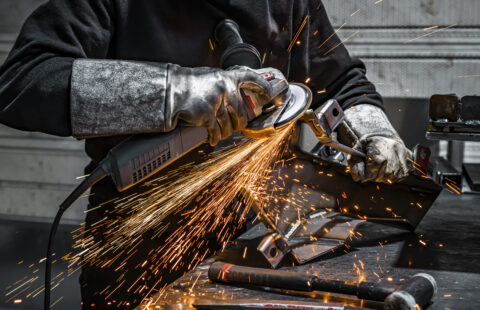
Why Quality Brass Products Matter in Every Industry
Introduction
Have you ever stopped to consider the importance of high-quality brass products in modern manufacturing? It’s not a flashy gadget or a cutting-edge technology. Instead, it’s a humble metal alloy that’s been around for centuries: brass. From the intricate workings of your wristwatch to the robust fittings in industrial machinery, brass plays a crucial role in countless products we use every day.
But here’s the kicker: not all brass is created equal. The quality of brass can make or break a product’s performance, durability, and safety. Poor-quality brass can lead to premature wear, corrosion, and even catastrophic failure—causing costly downtime, product recalls, or safety hazards. Conversely, high-quality brass enhances product longevity, boosts efficiency, and elevates customer satisfaction.
In this post, we’ll explore the vital role of quality brass in manufacturing and beyond. From its exceptional durability and corrosion resistance to its aesthetic appeal, we’ll uncover the reasons why choosing the right brass supplier is key for any business striving for excellence.
The Importance of Brass in Manufacturing
A. Durability and Longevity
Brass is celebrated for its unmatched durability and longevity. This copper-zinc alloy combines strength and malleability, making it an ideal material for various industrial applications. Unlike many other metals, brass maintains its structural integrity under harsh conditions.
- Wear Resistance: Brass performs exceptionally well in high-friction environments.
- Impact Strength: It absorbs shocks without cracking or deforming, enhancing its lifespan.
- Fatigue Resistance: Brass withstands repeated stress cycles, making it ideal for frequently used components.
Learn more about the importance of durable materials in manufacturing.
B. Corrosion Resistance
Brass’s remarkable corrosion resistance significantly reduces maintenance costs and extends product life.
- Natural Oxide Layer: This protective patina shields brass from environmental damage.
- Versatility: Brass withstands saltwater, chemicals, and atmospheric exposure.
- Cost-Effective Protection: Its inherent properties reduce the need for additional coatings.
For related applications, visit our corrosion resistance materials guide.
C. Conductivity Benefits
The exceptional electrical and thermal conductivity of brass makes it indispensable in manufacturing.
| Type | Benefits |
|---|---|
| Electrical | Efficient power transmission, reduced energy loss |
| Thermal | Rapid heat dissipation, improved system efficiency |
Check out our guide on electrical conductivity of metals.
D. Aesthetic Appeal
Brass’s warm, golden hue and versatile finishes add a touch of elegance to products.
- Visual Appeal: Brass enhances the look of architectural and decorative elements.
- Finish Options: Polished, brushed, or antique finishes cater to diverse preferences.
- Color Stability: Brass retains its beauty over time.
Industries Relying on Quality Brass Products
A. Plumbing and Construction
Brass is a cornerstone material in plumbing and construction due to its durability, corrosion resistance, and ease of installation.
Applications:
- Faucets and taps
- Pipe fittings and connectors
- Valves and shut-off mechanisms
- Water meters
Learn more about plumbing materials and solutions.
B. Electrical and Electronics
The excellent conductivity and corrosion resistance of brass make it indispensable in this sector.
| Component | Advantages |
| Terminals | High conductivity, easy machining |
| Connectors | Durability, corrosion resistance |
| Switch Gear | Long service life |
C. Automotive Sector
Brass components improve vehicle performance and longevity.
Applications:
- Radiator cores and tanks
- Electrical connectors
- Bearings and bushings
D. Marine Applications
Brass’s resistance to saltwater corrosion ensures reliability in marine environments.
Applications:
- Propeller shafts
- Navigation equipment
- Deck fittings
Discover how marine-grade materials perform under harsh conditions.
E. Musical Instruments
Brass’s acoustic properties and malleability make it the preferred material for wind instruments such as trumpets, trombones, and tubas.
Key Characteristics of High-Quality Brass
A. Composition and Alloy Ratios
The copper-zinc ratio in brass determines its properties. Common alloys include:
| Alloy Type | Copper % | Zinc % | Other Elements |
| Yellow Brass | 65-70 | 30-35 | – |
| Naval Brass | 60-63 | 35-37 | Tin (0.75%) |
B. Tensile Strength and Malleability
High-quality brass exhibits superior strength and flexibility, making it versatile for intricate designs and heavy-duty applications.
C. Surface Finish and Appearance
Premium brass products boast a uniform color, smooth texture, and resistance to tarnishing.
D. Dimensional Accuracy
Precision in manufacturing ensures tight tolerances, consistent quality, and reliable performance.
Choosing the Right Brass Supplier
A. Certifications and Quality Control
Select suppliers with certifications like ISO 9001 and robust quality control measures. Reliable suppliers perform rigorous testing at every production stage.
B. Manufacturing Capabilities
Evaluate suppliers’ equipment, production capacity, and expertise in custom alloy solutions.
C. Custom Solutions and Design Support
Choose suppliers offering collaborative design, prototyping, and material selection guidance.
D. Delivery Reliability
On-time delivery and flexibility in lead times are crucial for meeting project deadlines.
Conclusion: Investing in Excellence
High-quality brass products are vital for enhancing performance, reducing maintenance costs, and ensuring customer satisfaction across industries. By partnering with a certified and reliable brass supplier, businesses can achieve unparalleled excellence and long-term success. Remember, quality brass isn’t just a material choice; it’s an investment in innovation, reliability, and value.
Ready to elevate your products with the best brass components? Contact a trusted supplier today.

